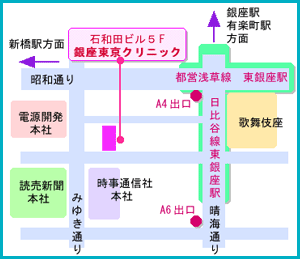クルミとフラックスシードオイル(亜麻仁油)は抗がん作用がある。
クルミとフラックスシードオイル(亜麻仁油)は抗がん作用がある。
食餌中のクルミは血管新生を抑制することによってマウスに移植した大腸がんの増殖を阻害する(Dietary
walnuts inhibit colorectal cancer growth in mice by suppressing angiogenesis.)Nutrition 28(1): 67-75, 2012
【要旨】
目的:動物実験において、フラックスシードオイルを補充した食餌が大腸がんの増殖を抑制することが示されている。最近の研究では、大腸がんの培養細胞を使った試験管内での実験で、クルミが大腸がん細胞に対して強い増殖抑制作用を示すことが報告されている。しかし、動物実験でのクルミの抗腫瘍効果や、フラックスシードオイルとクルミを併用した場合の効果に関しては検討されていない。この研究の目的は、動物移植腫瘍を使った実験モデルで、食餌中のクルミの大腸がんに対する抗腫瘍効果と、フラックスシードオイルの抗腫瘍効果との比較を行うことにある。
方法:ヒト大腸がん細胞HT-29細胞を6週齢のメスのネードマウスに移植し、1週間の馴化期間の後、マウス(n=48)は、総カロリーの19%程度をクルミから摂取させる群とフラックスシードオイルから摂取させる群とコーンオイル(コントロール)から摂取させる群の3つのグループにランダムに分け、25日間観察した。
結果:腫瘍の増殖速度は、コントロール群(コーンオイル摂取群)に比べて、クルミ摂取群では27%、フラックスシードオイル摂取群では43%減少した。(P < 0.05)
最終的な腫瘍重量は、クルミ摂取群では33%、フラックスシードオイル摂取群では44%の減少を認め、いずれも、コントロール群との差は統計的に有意であった(P < 0.05)
クルミとフラックスシードオイルの効果には統計的な差は認めなかった。代謝や内分泌系や血清抗酸化力や炎症の程度には3群間で差を認めなかった。しかしながら、クルミ摂取群とフラックスシードオイル摂取群では、血管内皮増殖因子(vascular endothelial growth
factor)を含む血管新生に関連する因子の血清中の濃度がそれぞれ30%と80%低下し、腫瘍の体積は縮小したにも拘らず、壊死の部分の面積は約2倍になっていた。食餌中のクルミ添加はCD34の発現レベルで評価した血管新生をコントロール群(コーンオイル摂取群)に比べて著明に抑制したが(P = 0.017 versus control)、フラックスシードオイル摂取群の血管新生阻害のレベル(CD34発現)はコントロール群と有意差を認めなかった(P = 0.454 versus control)。
結論:食餌でクルミを与えると、血管新生を抑制することによって大腸がんの増殖が阻害される。今回の動物実験の結果を人間で確認し、その作用機序を明らかにするための研究がさらに必要と思われる。
【訳者注】
クルミはナッツの中で最もω3不飽和脂肪酸のαリノレン酸が豊富です。
フラックスシードオイル(flaxseed oil)はアマ(亜麻)の種子(亜麻仁)から採れる油で、これもω3不飽和脂肪酸のα-リノレン酸が豊富です。
α-リノレン酸にはがん予防効果が報告されています。さらに、クルミやフラックスシードオイルには、抗酸化成分やがん予防成分が含まれています。
この論文では、移植腫瘍を用いた動物実験で、クルミとフラックスシードオイルががん縮小効果があることを報告しています。特に、クルミには血管新生阻害作用があることを報告しています。近年、クルミの健康作用が話題になっていますが、糖質制限と高脂肪食によるケトン食でクルミを多く摂取することは有用だと言えます。
原文
Nutrition. 2012 Jan;28(1):67-75. Epub 2011
Jul 27.
Dietary
walnuts inhibit colorectal cancer growth in mice by suppressing angiogenesis.
Nagel JM, Brinkoetter M, Magkos F, Liu X, Chamberland JP, Shah S, Zhou J, Blackburn G, Mantzoros CS.
Source
Division of Endocrinology,
Diabetes, and Metabolism, Beth Israel Deaconess Medical Center, Harvard Medical
School, Boston, Massachusetts, USA.
Abstract
OBJECTIVE:
Animal studies have demonstrated
that dietary supplementation with flaxseed oil inhibits colorectal cancer
growth. Recent data indicate that walnuts have strong antiproliferative
properties against colon cancer cells in vitro but no previous study has
assessed the effects of walnuts in vivo or performed a joint evaluation of
flaxseed oil and walnuts. The aim of the present study was to examine the
effect of dietary walnuts on colorectal cancer in vivo and to
comparatively evaluate their efficacy in relation to flaxseed oil.
METHODS:
HT-29 human colon cancer cells
were injected in 6-wk-old female nude mice. After a 1-wk acclimation period,
mice (n = 48) were randomized to diets containing ∼19% of total energy from
walnuts, flaxseed oil, or corn oil (control) and were subsequently studied for
25 d.
RESULTS:
Tumor growth rate was
significantly slower in walnut-fed and flaxseed-fed mice compared with corn
oil-fed animals (P < 0.05) by 27% and 43%, respectively. Accordingly, final
tumor weight was reduced by 33% and 44%, respectively (P < 0.05 versus
control); the differences between walnut and flaxseed diets did not reach
significance. We found no differences among groups in metabolic and hormonal
profile, serum antioxidant capacity, or inflammation (P > 0.05). However,
walnuts and flaxseed oil significantly reduced serum expression levels of angiogenesis
factors, including vascular endothelial growth factor (by 30% and 80%,
respectively), and approximately doubled total necrotic areas despite smaller
tumor sizes (P < 0.05 versus control). Dietary walnuts significantly
decreased angiogenesis (CD34 staining; P = 0.017 versus control), whereas this
effect did not reach significance in the flaxseed oil group (P = 0.454 versus
control).
CONCLUSION:
We conclude that walnuts in the diet inhibit colorectal cancer growth by suppressing angiogenesis. Further studies are needed to confirm our findings in humans and explore underlying mechanisms.
< 前の記事「 ケトン体が高いほど抗がん作用が強くなる 」 | ホーム | 次の記事「 クルミは乳がんの発生と増殖を抑制する 」 >






